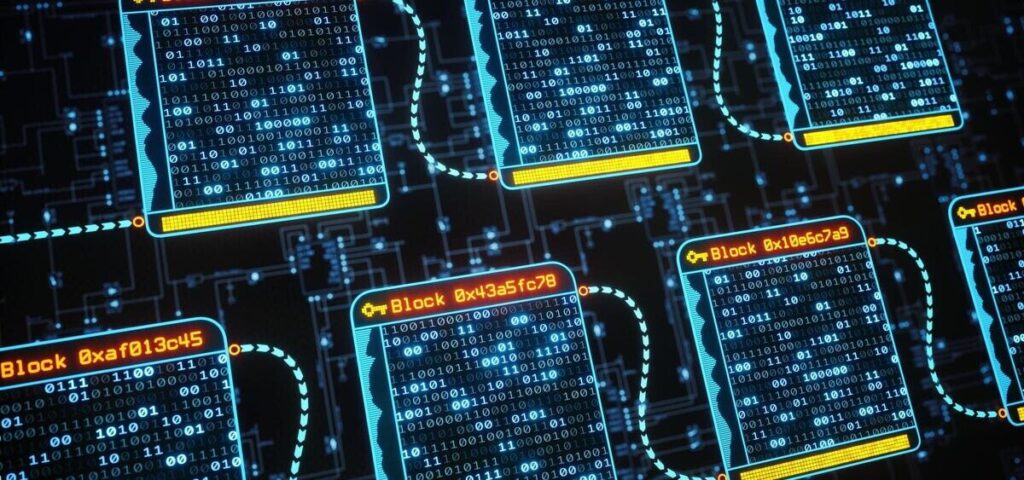The intersection of blockchain technology and video contracts is transforming the legal landscape by enhancing transparency, security, and authenticity in contract management. As businesses and individuals alike seek modern legal solutions to protect their interests, the rise of contracts on blockchain offers a cutting-edge approach to securing legal agreements. With the added innovation of video contracts, parties now have more personalized, immutable, and secure ways to execute and manage contracts. Let’s explore how these developments are setting new standards in legal security.
The Evolution of Contracts: From Paper to Blockchain
For centuries, legal contracts have served as the backbone of business and personal agreements. Traditionally, contracts were drafted, signed, and stored on paper, creating vulnerabilities such as document loss, tampering, and disputes over authenticity. The digital age brought some advancements, like electronic signatures and digital contract management systems, but issues like fraud, misrepresentation, and data manipulation persisted.

Enter blockchain technology—a decentralized, transparent, and immutable ledger system that records and verifies transactions across multiple nodes. This innovation has brought new levels of security to the legal sector, particularly in how contracts are executed and managed. Blockchain’s immutability of contracts ensures that once a contract is recorded on the blockchain, it cannot be altered, providing a layer of trust and security that traditional systems lack.
What Are Video Contracts on Blockchain?
Video contracts on blockchain represent a leap forward in digital contract management. Instead of relying solely on text, these contracts incorporate video as a form of evidence, where the parties involved can provide video consent, negotiations, or explanations. This adds a personalized and clear layer of agreement that goes beyond written words.
By embedding video contracts into the blockchain, the security in legal contracts is further strengthened. The video footage, like the text of the contract, becomes part of an immutable ledger that ensures its authenticity. Moreover, video contracts on blockchain eliminate the possibility of tampering or forgery, as any attempt to alter the contract would be immediately visible and detectable across the decentralized network.
Enhancing Security and Transparency
One of the primary benefits of contracts on blockchain is the unparalleled level of transparency they offer. Each transaction and agreement recorded on a blockchain is visible to all relevant parties, promoting trust and accountability. This transparency in contracts helps reduce disputes and misunderstandings, as all parties have access to the same unchangeable information.
In addition, blockchain technology addresses many of the security concerns traditionally associated with legal contracts. The decentralized nature of blockchain makes it highly resistant to cyberattacks, ensuring that sensitive contract information remains protected. Moreover, the immutability of contracts means that once they are executed, they cannot be altered retroactively, providing a robust legal framework for enforcing agreements.
Smart Contracts: Automating Contract Execution
Blockchain has given rise to a revolutionary concept known as smart contracts. These are self-executing contracts with the terms of the agreement directly written into code. Smart contracts automatically execute and enforce the agreement when specific conditions are met, removing the need for intermediaries like lawyers or notaries.
Video contracts can be integrated into smart contracts, adding another layer of automation and security. For example, a video consent recording could trigger the execution of a contract, ensuring that both parties have visually and audibly agreed to the terms. This not only increases the efficiency of contract execution on blockchain but also adds a personalized touch to the legal process, making agreements more clear and comprehensible.
Authenticity and Legal Validation
One of the most significant concerns in contract management is the authenticity of contracts. In traditional systems, parties often have to rely on physical signatures or third-party verification to prove the legitimacy of a contract. However, video contracts on blockchain provide an innovative solution to this issue.
Blockchain technology verifies the authenticity of contracts by providing a time-stamped and tamper-proof record of the agreement. With video contracts, the visual and audio records further validate the authenticity of the parties involved. This adds an extra layer of trust, making it easier for courts and legal systems to verify and enforce contracts.

The Future of Video Contracts in the Legal Sector
The combination of blockchain technology and video contracts represents a significant shift in the way legal agreements are managed and executed. As the legal sector increasingly adopts blockchain-based solutions, we are likely to see more personalized video contracts that offer both security and convenience. These contracts can be tailored to individual needs, making them adaptable to various industries, from real estate and finance to entertainment and healthcare.
Moreover, the rise of digital contract platforms built on blockchain is making it easier for businesses to create, execute, and manage contracts in a secure and efficient manner. These platforms offer tools for tracking contract history, managing disputes, and automating contract renewals, all while ensuring the immutability and authenticity of contracts.
Conclusion
In an era where security and transparency are paramount, video contracts on blockchain are setting new standards for legal security. By combining the immutability of contracts with the personalization of video, these contracts offer an unprecedented level of protection and trust. As blockchain technology continues to evolve, it is poised to revolutionize the legal sector, providing modern legal solutions that are both secure and efficient.
From smart contracts to the authenticity of contracts through blockchain, the future of legal agreements is undoubtedly digital. As businesses and individuals seek more secure and transparent ways to manage contracts, blockchain and video contracts are proving to be the innovative solutions that the legal world needs.



